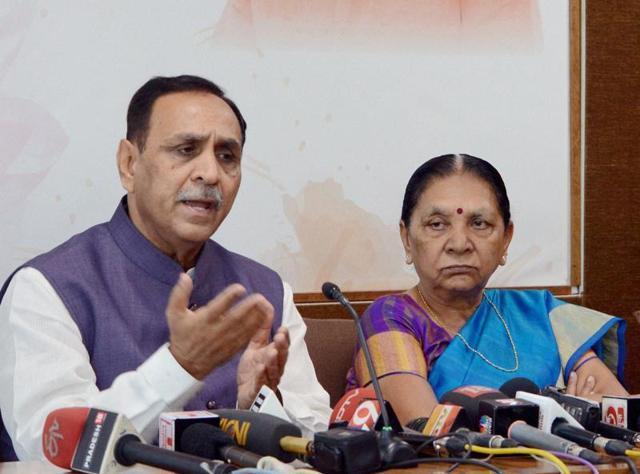Why Gujarat’s quota move is politically smart but legally suspect
The Gujarat government’s decision to give 10% reservation to the economically backward among upper castes is smart, but it may not withstand judicial scrutiny in view of the 50% ceiling on quota in government jobs imposed by the Supreme Court.
The Gujarat government’s decision to give 10% reservation to the economically backward among upper castes is politically smart, but it may not withstand judicial scrutiny in view of the 50% ceiling on quota in government jobs imposed by the Supreme Court.

Aimed at apparently placating the influential Patidar community, which has been violently agitating for quota in the state benefits since last year, the move will benefit all upper caste families with an annual income of less than Rs 6 lakh.
But the Anandiben Patel government’s decision is bound to hit legal hurdles as the new quota is in addition to the existing 49% reservation for Other Backward Classes, Scheduled Castes and Scheduled Tribes.
Read: Gujarat announces 10% quota for economically backward in gen category
While upholding the VP Singh government’s decision to give reservation to OBCs in government jobs, the Supreme Court in Indra Sawhney vs Union of India – popularly known as the Mandal case – ruled in 1992 that reservation can’t exceed 50%.
Tamil Nadu does have 69% reservation in government jobs but that is due to the fact that it’s been placed in the Ninth Schedule of the Constitution that protects laws from judicial scrutiny and the challenge against it is still pending in the SC.
But even if the Gujarat government’s decision is placed in the Ninth Schedule of the Constitution, it will be vulnerable to a legal challenge.
Article 368 gives power to Parliament to amend the Constitution. But Article 13 of the Constitution restrains the State from making any law inconsistent with the fundamental rights.
Post independence, the restriction was coming in the way of the government enacting and enforcing land reforms laws, as property was then a fundamental right.
Added to the Constitution by the First Amendment in 1951 along with Article 31-B, the Ninth Schedule gives a “protective umbrella” to laws, including land reforms laws, placed under it.
Article 31-B gives “fictional immunity” to laws enacted under it and placed in the Ninth Schedule even if such laws violated fundamental rights.
In January 2007, a nine-judge Constitution Bench upheld Parliament’s power to place a particular law in the Ninth Schedule, but said such laws did not enjoy a blanket protection from judicial scrutiny.
The SC laid down a two-fold test to examine the validity of a law placed in the Ninth Schedule. First, it has to be examined whether the law in question violates any fundamental right or not.
Read: Hardik’s outfit rejects Gujarat’s 10% quota for economically backward
And if yes, whether the violation also damages or destroys the basic structure of the Constitution. If the answer to both the questions is in the affirmative, then only a law placed in the Ninth Schedule can be declared unconstitutional.
Terming the 10% quota for Economically Backward Classes “insufficient”, the Congress in Gujarat on Friday demanded that it should be raised to 20%.
Given the fact that the state is going to polls next year, the Congress may provide legislative backing to the move both in the state assembly and in Parliament for placing it in the Ninth Schedule. But clearing the legal hurdles would be an uphill task.





